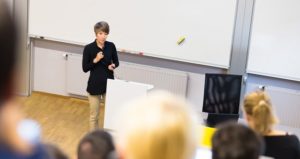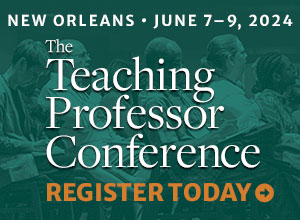
New Faculty Orientation Features Advice from Students
As director of our faculty support center, one of my responsibilities is to coordinate an orientation program for new faculty. Years ago we decapitated the “talking head” format of traditional orientation sessions and now try to provide interactive sessions that introduce our new colleagues to both our campus policies and our campus culture. While the transition of most topics to the interactive format has been easy, the session on the course syllabus has remained relatively dry—until this year.






